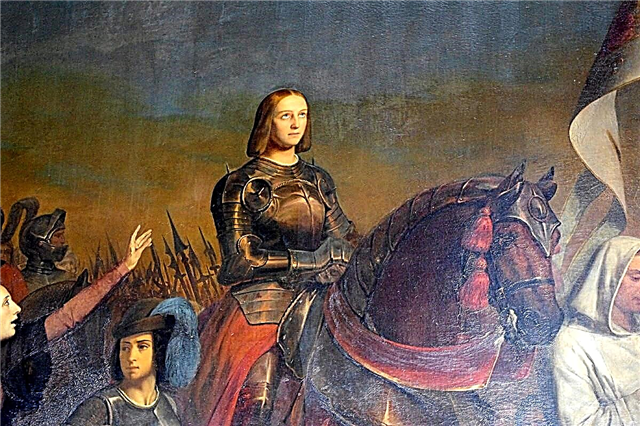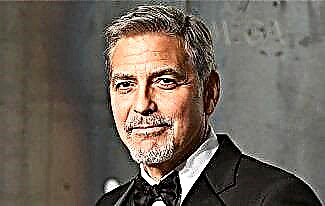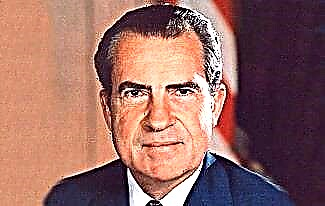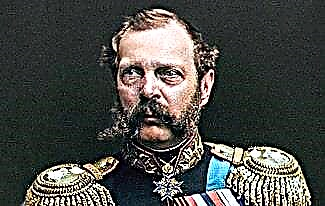Rudolf Walter Richard Hess (1894-1987) - statesman and politician of Germany, deputy Fuhrer in the NSDAP and Reichsminister.
In 1941 he made a solo flight to Great Britain, trying to persuade the British to conclude a truce with Nazi Germany, but failed.

Hess was arrested by the British and held captive until the end of the war, after which he was transferred to the International Military Tribunal, which sentenced him to life imprisonment. Until his death, he remained loyal to Hitler and Nazism. After committing suicide, he became an idol of neo-Nazis who elevated him to the rank of martyrs.
There are many interesting facts in the biography of Rudolf Hess, which we will talk about in this article.
So, here is a short biography of Hess.
Biography of Rudolf Hess
Rudolf Hess was born on April 26, 1894 in Egyptian Alexandria. He grew up in the family of a wealthy Bavarian businessman Johann Fritz and his wife Clara Münch. In addition to Rudolph, a boy Alfred and a girl Margarita were born in the Hess family.
Childhood and youth
The Hessians lived in a luxurious mansion built on the seaside. The entire childhood of the future Nazi was spent in the German community of Alexandria, as a result of which neither he nor his brother and sister communicated with Egyptians and people of other nationalities.
The head of the family was a very stern and domineering person who demanded unquestioning obedience. Children were brought up in strict discipline, adhering to a specific schedule of the day. In 1900, my father bought a plot of land in the Bavarian village of Reicholdsgrün, where he built a 2-storey villa.

Here the Hessians rested annually in the summer, and sometimes did not leave the village for six months. When Rudolph was about 6 years old, his parents sent him to a local Protestant school, but later his father decided to teach both sons at home.
At the age of 14, Rudolf Hess continued his education at the German House boarding school for boys. Here they gave an excellent education, as well as taught various crafts and taught sports. At this time, the biography of the young man was distinguished by his taciturnity and isolation.
Hess soon became one of the best students. After graduating from boarding school, he entered the Swiss Higher Business School. Here he was trained in trade, shorthand and typing. However, in this institution he studied more at the behest of his father, who wanted to transfer the business to him, rather than on his own.
The First World War (1914-1918) helped Rudolph to free himself from the "commercial bonds". He was among the first volunteers to go to the front. Although the father was against such a decision of his son, this time the young man showed firmness and did not compromise his convictions.
An interesting fact is that Hess then told his father the following phrase: "Today, orders are given not by businessmen, but by soldiers." At the front, he proved himself as a brave gunner and infantryman. He participated in the hardest battles, repeatedly receiving serious injuries.
In October 1917, Rudolf Hess was promoted to lieutenant, after which he transferred to the German Air Force. He served in a fighter squadron and was awarded the 2nd degree Iron Cross.
The war had a deplorable effect on the material well-being of the family. Hess Sr.'s business was confiscated, making it difficult for him to take care of his wife and children. War veterans were entitled to free education. For this reason, Rudolph entered the University of Munich as an economist, where he became friends with Hermann Goering.
Political activity
In 1919, Hess attended a meeting of the Thule Society, the German occult and political community. Here the superiority of the Aryan race over others was discussed and justified, along with anti-Semitism and nationalism. What he heard at the meetings seriously influenced his personality formation.
After some time, Rudolph met the charismatic Adolf Hitler, who made an indelible impression on him. The men immediately found a common language among themselves.

Hess was so inspired by Hitler's fiery speeches that he literally followed on his heels and was ready to sacrifice his own life for him. In November 1923, the Nazis attempted to seize power, which went down in history as the Beer Putsch.
However, the coup was suppressed, and many of its organizers and participants were arrested. As a result, Hitler and Hess were imprisoned in Landsberg Prison. An interesting fact is that it was here that the future head of the Third Reich wrote most of his book "My Struggle".
It is worth noting that the prisoners were kept in very mild conditions. For example, they could gather at the table and discuss political topics. During these conversations, Rudolph began to admire Hitler even more. It is curious that it was Hess who wrote many chapters of My Struggle, and also acted as the editor of the book.
In January 1925, the prisoners were released. Rudolph persuaded Adolf to become his secretary. It is important to note, in addition to his direct duties, Hess also took care of his boss's diet and routine. Biographers say that it was largely thanks to him that in 1933 the Fuhrer became the head of state.
When the Nazis came to power, Hitler made Rudolf his first deputy. Hess taught fellow party members to strict discipline, and also urged to fight against smoking and drinking. He also forbade the Nazis to have close relations with Jews. Moreover, he subjected these people to persecution, which led to the emergence of the Nuremberg racial laws (1935).
Every year, the Third Reich turned into an increasingly militarized and economically strong country. The Fuehrer declared the need to conquer new territories, which is why the Nazis began to prepare for World War II (1939-1945).
The German leader regarded Britain as a reliable ally, and therefore offered the British to sign an agreement: Germany should gain dominance in Europe, and Britain should return the German colonies. It is worth noting that the Nazi considered the inhabitants of the United Kingdom to be a kindred "Aryan" people.
The negotiations reached an impasse, after which Rudolf Hess conceived a "Peace Mission". On May 10, 1941, he flew secretly to Scotland, aiming to enlist the support of the British. Through his assistants, he asked to inform Hitler about his action after he left Germany.

Reaching the west coast of Scotland, he began to look for the landing strip, which was marked on the map. However, not finding her, he decided to eject.
During a parachute jump, Rudolf Hess hit his ankle hard on the tail of the plane, as a result of which he lost consciousness. He came to himself after landing, surrounded by the military.
When the Fuehrer was informed of what had happened, it infuriated him. Hess's reckless act jeopardized the connections established with the allies. Enraged, Hitler called Rudolph crazy and a traitor to Germany.
The pilot's "peace mission" was to convince Churchill to conclude a treaty with the Third Reich, but nothing came of it. As a result, Hess's actions were completely useless.
Conclusion and trial
After his arrest, Rudolph was interrogated for about 4 years. During this period of his biography, the prisoner tried to commit suicide three times and began to show signs of mental disorder. An interesting fact is that when he was taken to court in Nuremberg, he was in a state of amnesia.
In October 1946, judges sentenced Hess to life imprisonment, accusing him of a number of serious crimes. A year later, he was placed in Spandau prison.

In the 60s, Rudolf's relatives insisted on his early release. They argued that he was a victim of circumstances and that he was being held in dire conditions.
The tribunal refused to release Hess. However, the prisoner himself did not strive to be released in this way, saying: "My honor for me is higher than my freedom." Until the end of his life, he remained loyal to Hitler and did not admit his guilt.
Personal life
At the end of 1927, Rudolf Hess married Ilse Prel. He loved his wife very much and even wrote poetry for her. Nevertheless, in a letter to her friend, Ilsa said that her husband was performing poorly in his marital duties.
An interesting fact is that in this marriage the first and only child, Wolf Rüdiger Hess, was born only 10 years after the wedding of the spouses. Hess's contemporaries suspected the Nazi of gay sex. However, whether it was really that difficult to say.
Death
Rudolf Hess committed suicide on 17 August 1987 by hanging himself in a prison cell. At the time of his death, he was 93 years old. Until 2011, the body of the Nazi rested in the Lutheran cemetery, but after the lease of the land plot expired, the remains of Hess were cremated, and the ashes were scattered over the sea.
Photo by Rudolf Hess


















